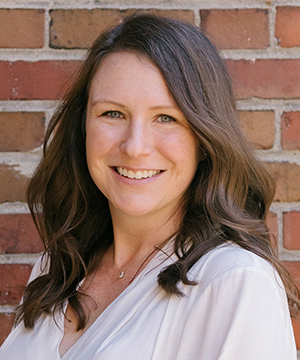NEXUS NEWS
Focusing on Process Improvement with Nicole Friedberg
February 16, 2022
by Cj Pettus

Lean Six Sigma Instructor Nicole Friedberg shares her experience.
Lean Six Sigma Instructor Nicole Friedberg has maintained a focus on process improvement throughout her career. Following that focus led Nicole on the path to becoming an instructor at her alma mater.
HOW WOULD YOU DESCRIBE YOUR CAREER PRIOR TO JOINING NEXUS?
Nicole: Before joining the Nexus team, I worked in several different industries. I started my career at a defense contractor in their leadership development program where I rotated through four positions specializing in operations, quality, supply chain, and an elective—I chose Lean Six Sigma. Through the rotations, I had the opportunity to work on several space system and information system programs across the US. I then took a full time position as a system safety and quality engineer with the same company on a program that built an imaging satellite.
After leaving the beautiful west coast weather and moving ‘home’ to Michigan, I worked for an automotive manufacturer as an industrial engineer and workplace organization specialist at an engine plant. I transitioned from that position to focus on Lean Six Sigma at a global auto financing company. It was at that point that I had the opportunity to return to the University of Michigan.
HOW HAS LEAN SIX SIGMA IMPACTED YOUR CAREER?
Nicole: As an undergraduate engineering student at the University of Michigan, I took professor Hammett’s Industrial and Operations Engineering 461 course and loved it. During my first rotation of my first job out of college, I had the opportunity to take the company’s in-house Green Belt training. Throughout all of my positions, there has always been a focus on process improvement.
During my last rotation in the leadership development program, I completed the company’s in-house Black Belt training and started my journey as an instructor. I had the opportunity to work on a team of Master Black Belts as we redesigned the in-house Lean Six Sigma training programs. I taught several courses. I mentored students through projects, and I mentored new training instructors as well. It was a pivotal point in my career because I learned how much I loved Lean Six Sigma and how much I loved teaching others. From that point forward, I looked for roles where I could improve processes and make a positive impact on an organization and its people.
HOW DID YOU ULTIMATELY EARN YOUR MASTER BLACK BELT?
Nicole: When I was part of the team of Master Black Belts (MBB) redesigning my company’s in-house Lean Six Sigma training, I realized that I wanted my MBB certification. My experience as a Black Belt and leading the Lean Six Sigma program for our imaging satellite program reinforced my goal to do more than just lead process improvement projects—I wanted to impact the cultural change an organization needs to fully embrace and benefit from a Lean Six Sigma program.
The path from Black Belt to Master Black Belt was not without obstacles. I applied for my company’s internal MBB program and was denied because I had only a few years of experience. Despite feeling frustrated, I persisted in my Lean Six Sigma journey because it was my passion. After relocating back to Michigan, I set my sights on the University of Michigan MBB program.
WHY DID YOU CHOOSE TO EARN YOUR MASTER BLACK BELT FROM U-M RATHER THAN ANOTHER INSTITUTION?
Nicole: While working at an automotive financial institution, I was asked to take a role to design and lead the process improvement program. I researched MBB programs because I wanted to have the formal training needed to design an exceptional program. U-M’s MBB program had the topics, rigor, and respect that I was looking for. I pitched my analysis of several programs to the company’s leadership and obtained approval and funding to attend the program.
WHY DO YOU THINK LEAN SIX SIGMA IS IMPORTANT?
Nicole: It’s easy to get stuck in a rut and continue to run processes as they were originally designed. The toolset and methodology of Lean Six Sigma (LSS) allows you to challenge expectations and embrace continuous improvement. I especially love the Six Sigma aspect of LSS because it uses data-driven decision making to identify improvements.
WHAT IS YOUR FAVORITE PART OF BEING A LEAN SIX SIGMA INSTRUCTOR?
Nicole: My favorite part is watching students apply tools and concepts learned in class to solve problems in their workplaces, ultimately improving their organizations’ processes.